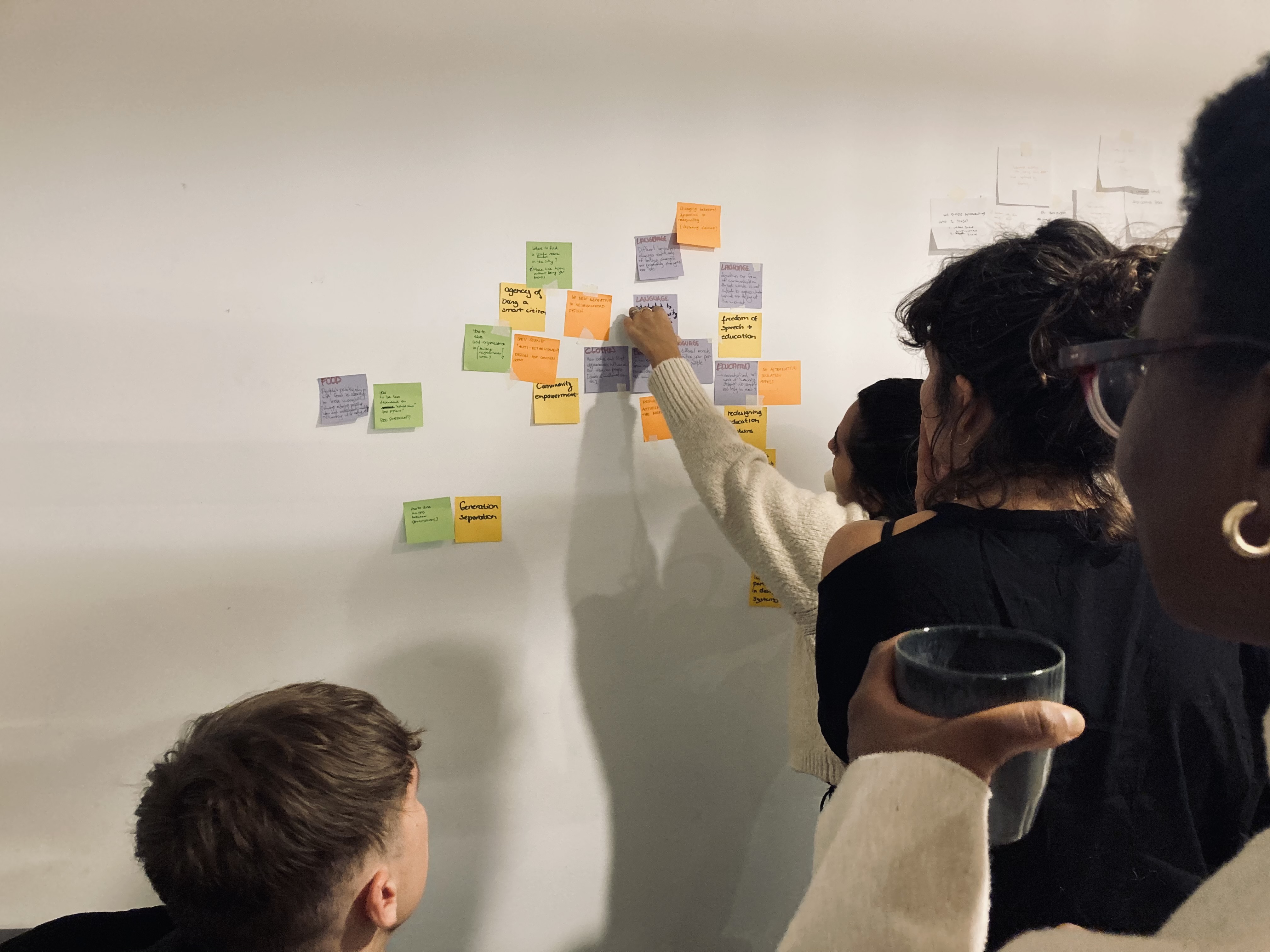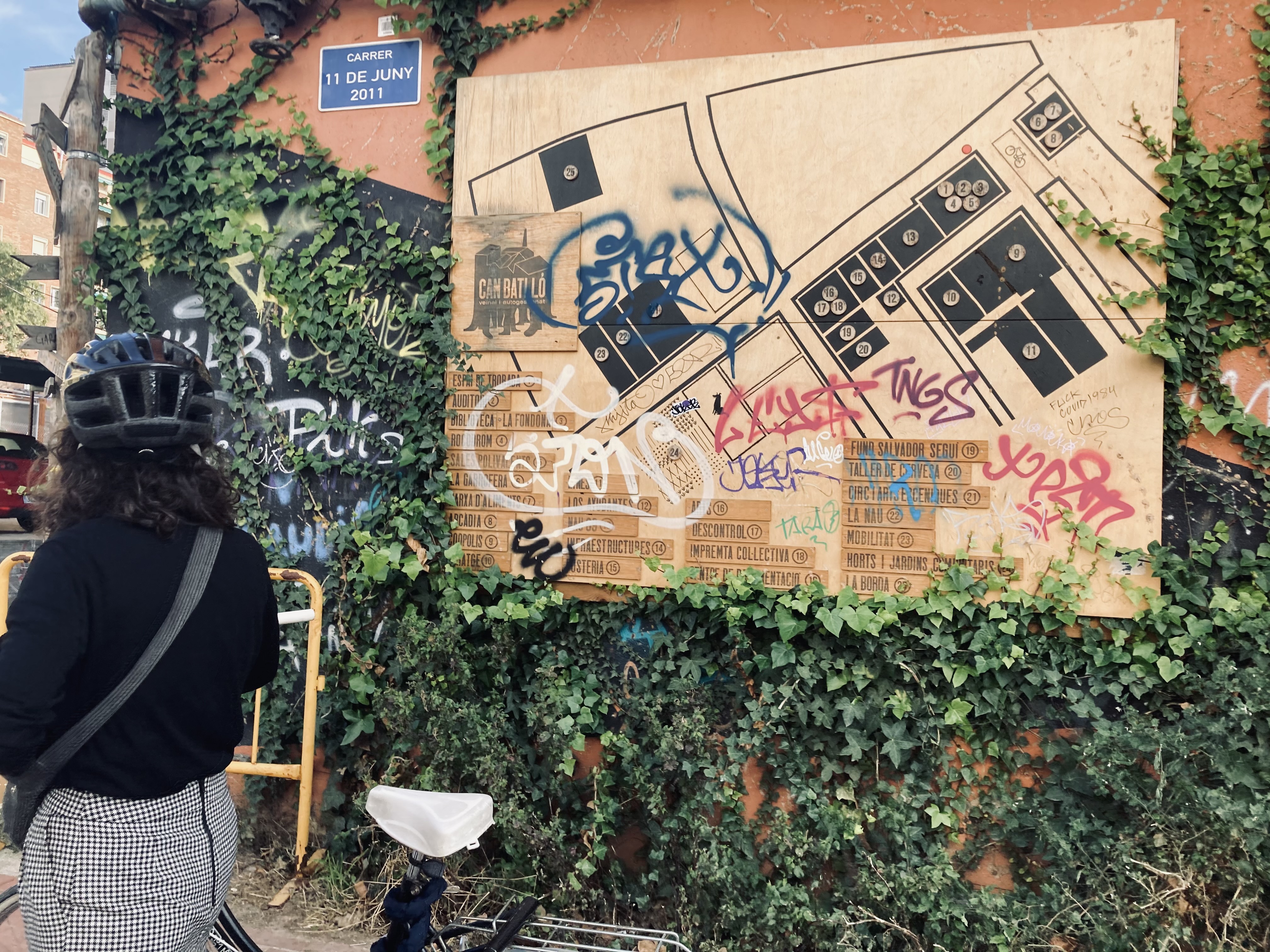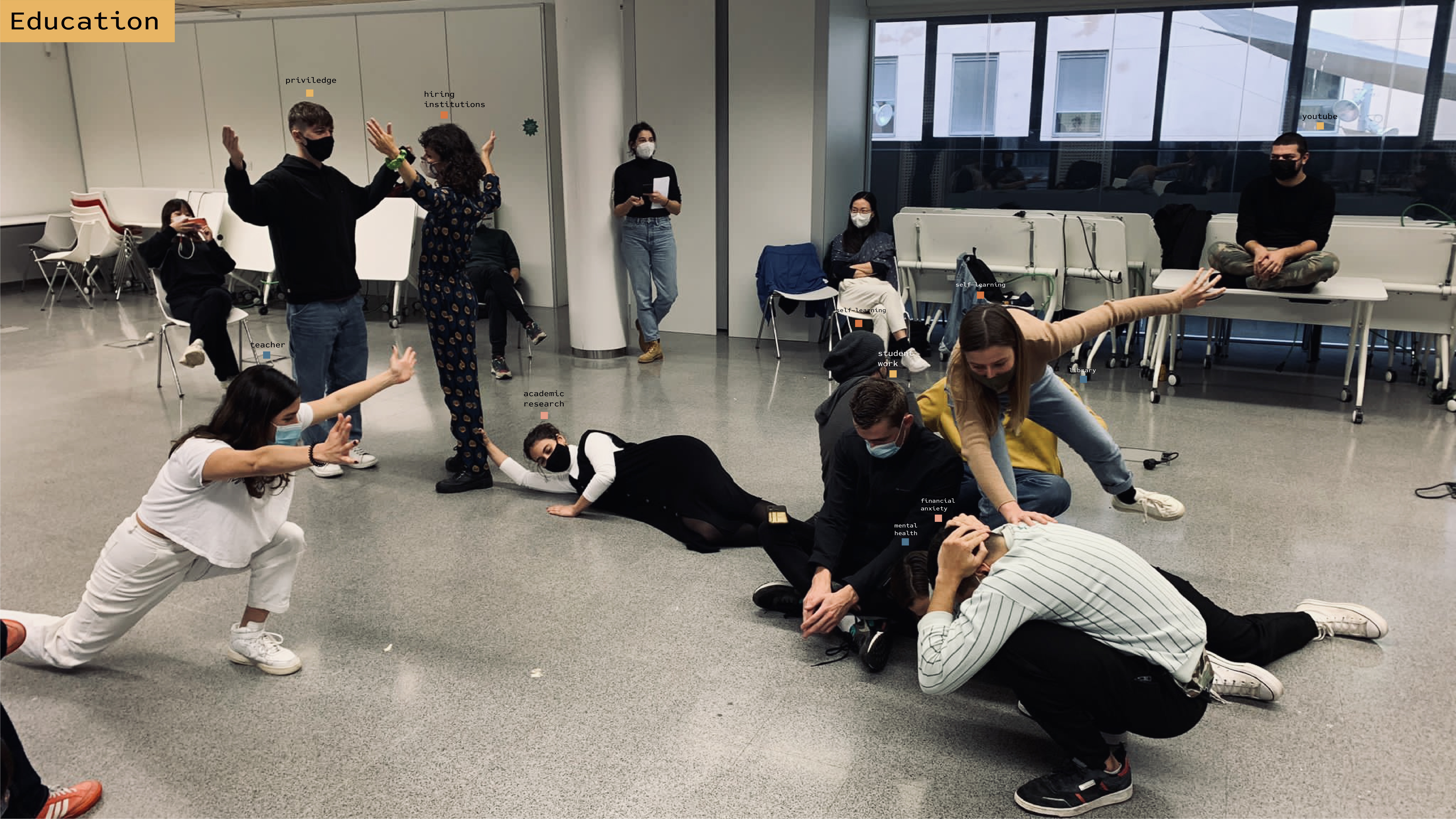Community Engagement
This week we were introduced to Mercé and Merkel from the Collective of HOLON, which aims to make a transition in every day life for people by helping organisations become the new normal through design. With them we were able to make transitions in our way of thinking about our challenges we would like to solve.
First we studied about their projects, which were really interesting to me, how they use the approach of everyday transition in topics, such as public policy making, planetary or neighborhoud wellbeing or housing.

At the beginning of this week we created many topics or challenges as well, which needed transition. This week at our Design studio we formed groups who we resonate with and try to fight for the same solution or against emergent problems. Our task is to create interventions based on these challenges…
Firstly, we studied about the genealogy of how the practices which react on these emergent or “wicked” problems changed over the years, from industrialisation to critical design to a method we use here future design. Although we have different names for these approaches and I can connect many more that are populating our field today, they are all relying on the same base, which is thinking in systems and solve the problems through the most relevant perspectives to the current situation. Through the course we studied about many tools which create systems in our design processes, such as the Iceberg model and the ecosystem mapping for locate our challenges and by doing so connect them with other similar dots.
With my group mates, who are Audrey, Busi, José and Nikita we formed a group which aims to create conversation and research the topic of something we call decentralised learning and by that we mean unlearning learning. Through this week we systematised our topic through the tools our lecturers gave us and created our local ecosystem. This upcoming week will be curious participants of a Decidim meeting where we can exchange ideas about the future of a neighbourhood in Barcelona, we will visit Can Batllo, to know more about their new ways of education and raising voice and we will learn about learning from Kate on our design reviews, not to mention a visit to Aquí where we can talk about such topics as new learning environments in the city or exchanging generational perspectives.


While we were exchanging our perspectives of education and the problems we are facing today, (for example that we study in systems created by the needs of previous generations and led by them. Today's needs changed and the hierarchy in teaching and learning should change as well.) our classmates shared their own ideas as well when we embodied these with Mercé through our bodies, as living sculptures, ecosystems and humans who could feel these problem with all our hearts, bodies and minds.

The next days we studied about the limits and sins of participation, theories of change and how to place ourselves and our “shaked” roles in the above mentioned systems as designers.
Our role with our shaked group in the upcoming weeks will be the create dialogues, environments for participation and to shake the system of who is teaching who with the tools and mindsets Mercé and Merkel gave us. Next to practicing these I will extend my knowledge about these by continue reading:
- Design, When everybody Designs - Ezio Manzini
- Leading from the Emerging Future - Otto Scharmer and Katrin Kaufer
- Design for the Real World - Victor Papanek
- Know who’s caring locally about what we care
- Understand the role of the different agents
- See projects or actions performed by the different agents of the system

